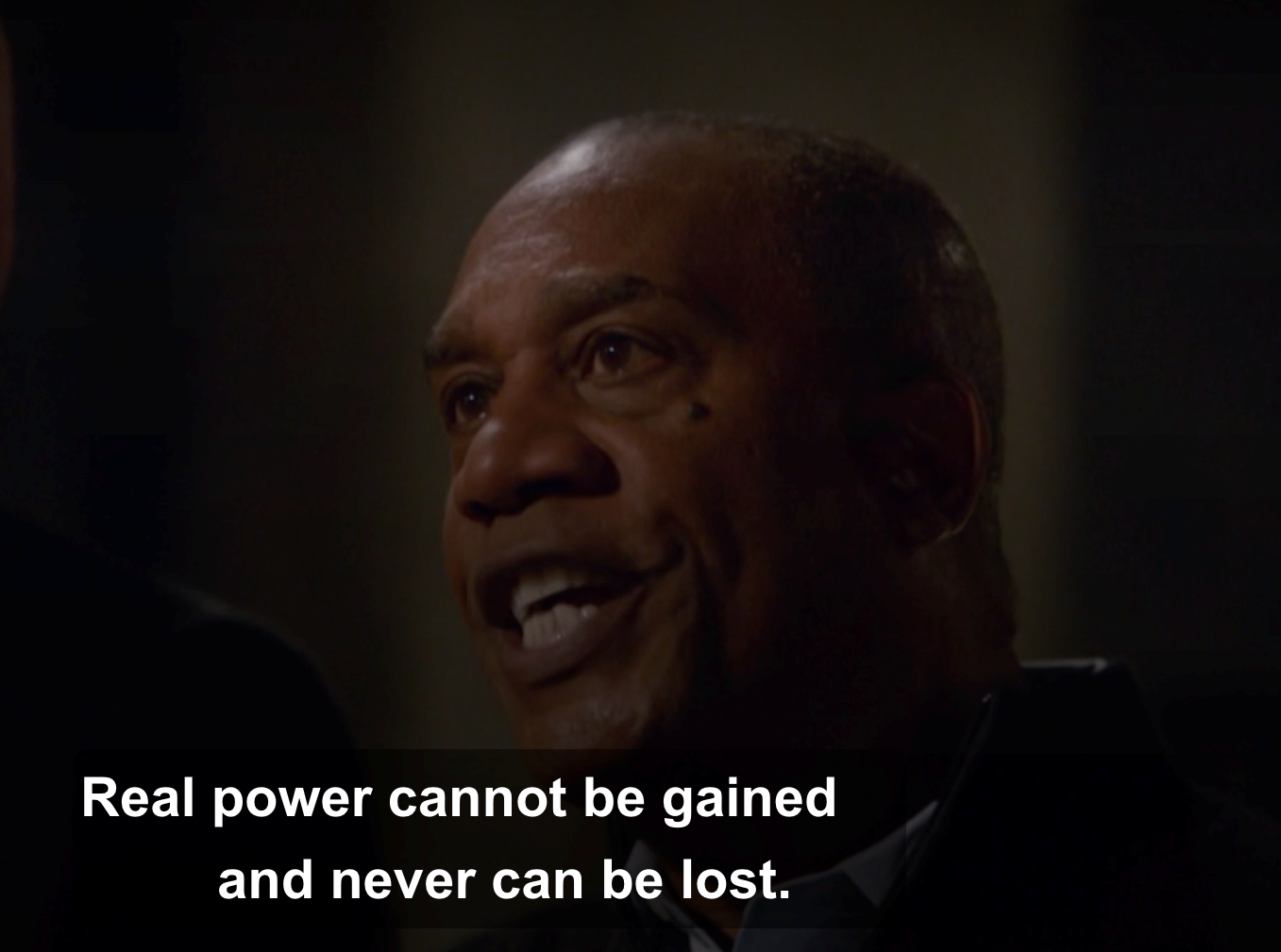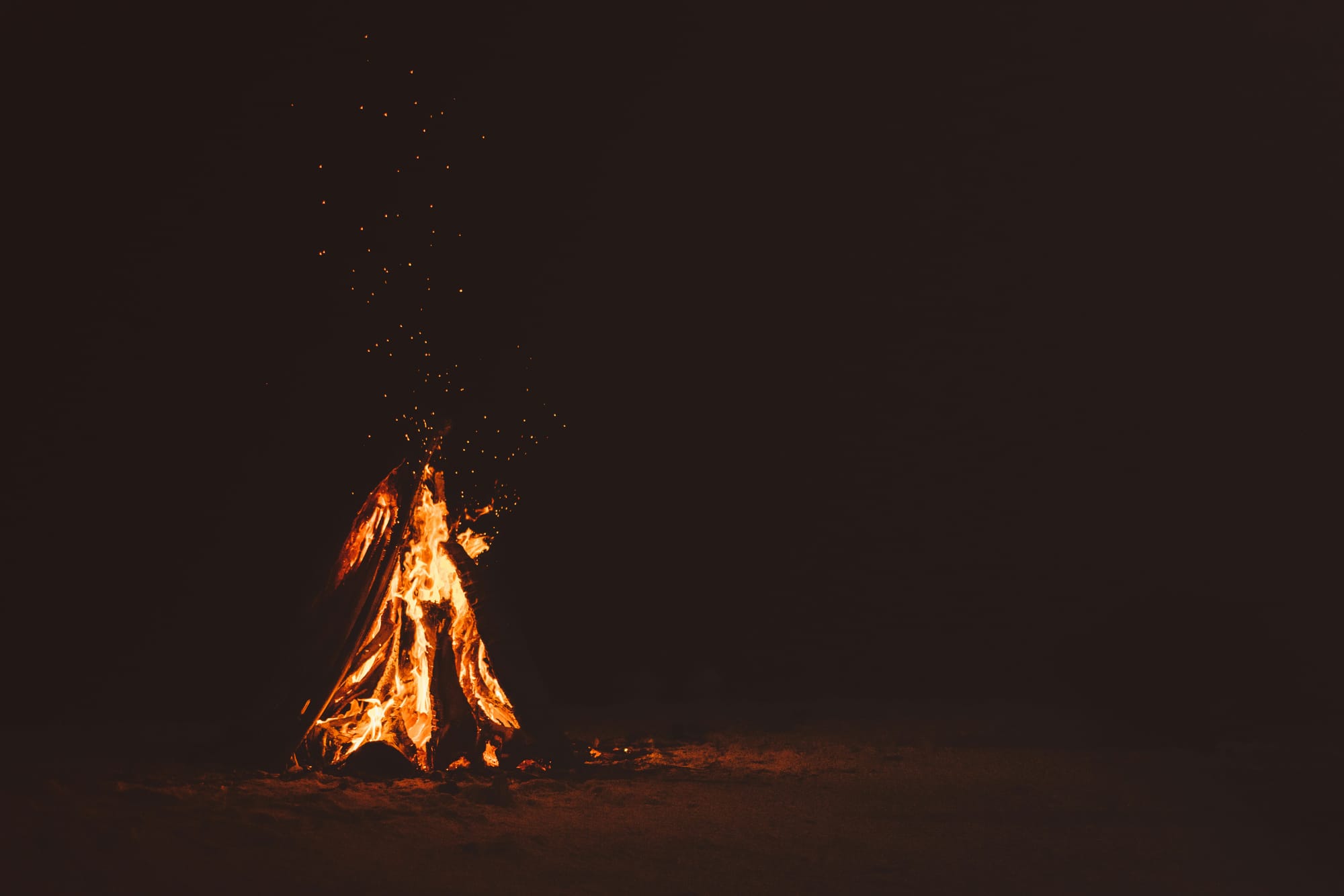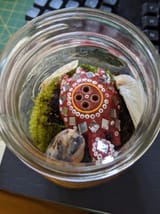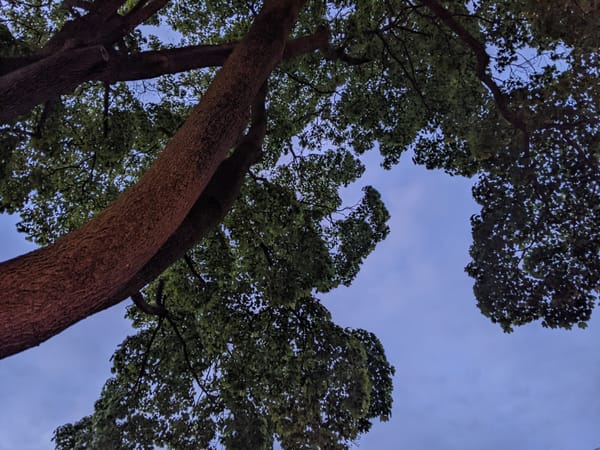Quiet power, Small power

Hello friends,
Turns out we share a love of the TV show Scandal, more than one of you reached out to me to tell me you loved it too! I remember watching it for the first time, in February 2014 when I had first arrived in Turtle Island from Chennai, and lived in New York city in the peak of winter. I thought then, wow, this show is so dramatic!
When I watched it again this February, I couldn't remember why, but I was so wrong and had a lot of growing to do! It is a visionary and accurate depiction of the lives of powerful people and the people they exert power on, in the so-called developed world. Towards the end, Eli Pope, whose character is played by Joe Morton, offers a valuable lesson on real power.

Real power is silent. Real power is hidden. Real power was there all along. Real power can never be gained and never be lost. It is not a commodity, it is who you are.
— Eli Pope played by Joe Morton, Scandal season 7
The theme of true power came up again when I read Malidoma Patrice Somé's book "Ritual — Power, Healing and Community, The African teachings of the Dagara" this week. His work offers practices and stories from the indigenous way of life of the Dagara for the people living in the capitalistic individualistic world. Speaking to the display of power, he shares:
It is the action of those in power that produces the poor, the menial worker, the man and woman in debt and the homeless. Misused power triggers its exact opposite as if that opposite needed to be there to highlight the dys-functionality of its creator.
The menial worker, the man and woman in debt, the poor and the homeless exist, as if they must, to highlight the person in power. The person who displays this kind of power needs more help than those who are, more or less, the casualties of this power display.
— Malidoma Patrice Somé in Ritual: Power, Healing and Community.
I'm thinking about the notion of Eli Pope's "real power".
is "real power" in imagination, dreams, friendships, art, and the little voice in my head that wants me to turn my life upside down that I would love to ignore but cannot?

It felt powerful to take small actions this week — finally uninstalling big tech apps on my phone like lyft and uber for small local taxi services, leaving the social media carousel for cozy personal messages on Signal.
I am returning to the joy and power of paying for an album I can download instead of pretending as though I need infinite music to stream.
I am revelling in the power of asking my loved ones how they are doing, and gathering with friends who invite me and teach me how to make dumplings around their dining table.
I feel my courage swelling through the power of showing up to creative practice over and over again. Through meeting queer people packed into a small coffee shop at an open mic last week organized by Queer South Asians in Toronto, and listening to and sharing South Asian stories and poetry about love and revolution.
I am replenished by the power of navigating conflict with my loves while holding hands and caring for each other. By retreating and taking a moment to take stock of my needs.
And, I am so grateful for the power of connecting with you, here. <3
I leave you with music, people and podcasts for this moment that I've loved:
- I've been a fan of Toi Smith's work for several years now. I highly recommend checking out are their Loving Black Single Mothers initiative, and their yearlong political education newsletter series The Deepening, and everything else they offer!
- Through a newsletter they sent in October 2024, I was introduced to André 3000's flute album New Blue Sun, and I've listened to it on repeat during my creative practice the past few months. It's beautiful.
- My friend, Sola Da Silva, made a podcast called Third Space where they explore the role and power of architecture in creating spaces of belonging and wellbeing for our communities. I've learned so much about the intentional design of spaces that nurture our collectives through their conversations, check it out!
- Help this garden grow is a podcast series that tells the stories and lessons learned from Hazel Johnson, who envisioned the Environmental Justice movement through their experience living in Altgeld Gardens on the far South Side of Chicago, where public housing was offered to returning Black world war 2 veterans. This housing was built over a former industrial waste dump, on land stolen from it's original stewards including the Potawatomi Nation. What started as a fight against toxic industrial pollution and it's health consequences has grown into a global movement. The podcast has so much to offer about movement leadership, grief and creating change through strategy, relationships and the power of the people coming together. It's six episodes, I highly recommend it!
Take care, and I will see you next week!




